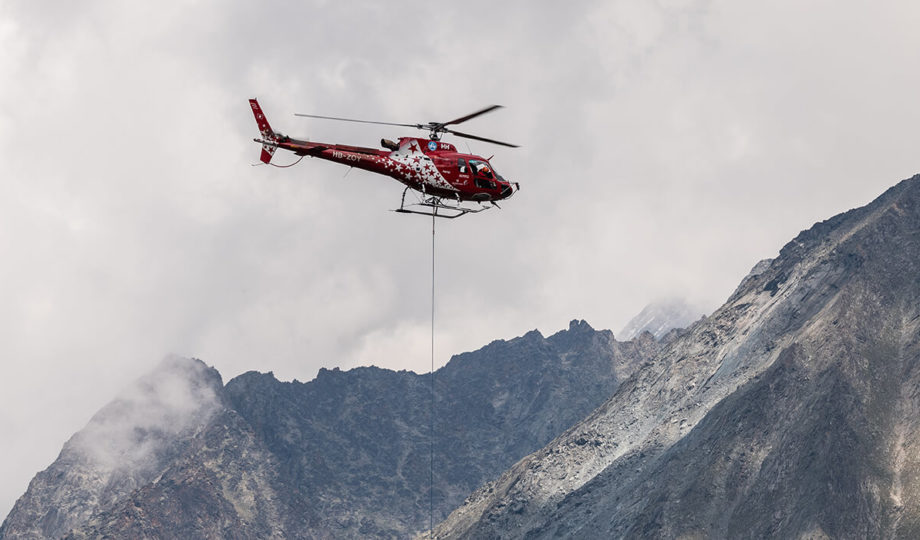Mountain huts in the Swiss Alps are more than just picturesque spots for weary hikers; they are lifelines in the rugged terrain that offer shelter, food, and a place to rest. But have you ever wondered how these remote huts are supplied, given their often-inaccessible locations? One of the most critical components of this logistical puzzle is the helicopter. But are helicopters truly essential for supplying Swiss mountain huts, or could alternative methods suffice?
The Role of Helicopters in Supplying Swiss Mountain Huts
Switzerland is renowned for its extensive network of mountain huts, which are maintained by organizations like the Swiss Alpine Club (SAC). These huts range from simple shelters to more luxurious accommodations, often situated at altitudes where traditional transport methods are impractical, if not impossible. This is where helicopters come into play.
Efficiency and Speed
Helicopters offer unparalleled efficiency and speed in transporting supplies to high-altitude locations. A typical helicopter supply mission can deliver everything from food, beverages, and cleaning supplies to gas bottles and building materials. These missions are often meticulously planned, with pilots expertly navigating treacherous mountain terrain to drop off supplies precisely where they are needed. The alternative — transporting goods on foot for by mules — would be time-consuming and physically exhausting, making helicopters the preferred choice for most hut operators.
Environmental Impact
While helicopters are indispensable for many huts, they are not without their drawbacks. The noise pollution and carbon emissions associated with helicopter fights are significant concerns, particularly in the serene mountain environments that these huts inhabit. Switzerland, known for its environmental consciousness, has prompted some discussions about the sustainability of relying on helicopters. However, given the current technology and the remoteness of many huts, helicopters remain the most practical option. 
Emergency Situations
Beyond regular supply runs, helicopters are essential in emergency situations. Whether it’s evacuating injured hikers or delivering urgent supplies during extreme weather conditions, helicopters provide a critical service that no other transport method can match. In the unforgiving environment of the Alps, this rapid response capability can mean the difference between life and death.
Alternatives to Helicopters
While helicopters are the backbone of hut resupply operations, there are alternative methods being explored to reduce the environmental footprint.
- Cableways and drones. Some huts are experimenting with cableways — permanent or temporary systems that can transport goods over long distances. However, these are only feasible in certain locations and require significant infrastructure. Drones, too, have been proposed as a potential solution for small, lightweight deliveries. However, the technology is not yet advanced enough to handle the challenging weather conditions and heavy loads that helicopter missions currently manage with ease.
- Human-powered transport. In some cases, particularly for huts located at lower altitudes or those that are more accessible, traditional human-powered transport is still in use. Volunteers or staff members carry supplies on foot, often using backpacks designed for heavy loads. While this method is sustainable and cost-effective, it is not feasible for most high-altitude huts, especially those that require large quantities of supplies.
Are Helicopters Essential?
Given the current state of technology and the unique challenges posed by the Swiss Alps, helicopters are indeed essential for supplying most mountain huts. They offer an unmatched combination of speed, efficiency, and the ability to operate in remote and rugged terrains where other methods fall short. However, as environmental concerns grow and technology advances, it is possible that new methods of resupply will emerge, reducing the reliance on helicopters.
For now, though, the unmistakable thrum of helicopter blades remains a familiar and necessary sound in the Swiss mountains, ensuring that these cherished huts continue to provide refuge to adventures and nature lovers.
- Are Helicopters Essential for Supplying Swiss Mountain Huts? - August 12, 2024
- How To Minimize Your Carbon Footprint When You Travel - May 6, 2024
- Climate Change and Its Toll on the Alpine Ecosystem - March 29, 2024

